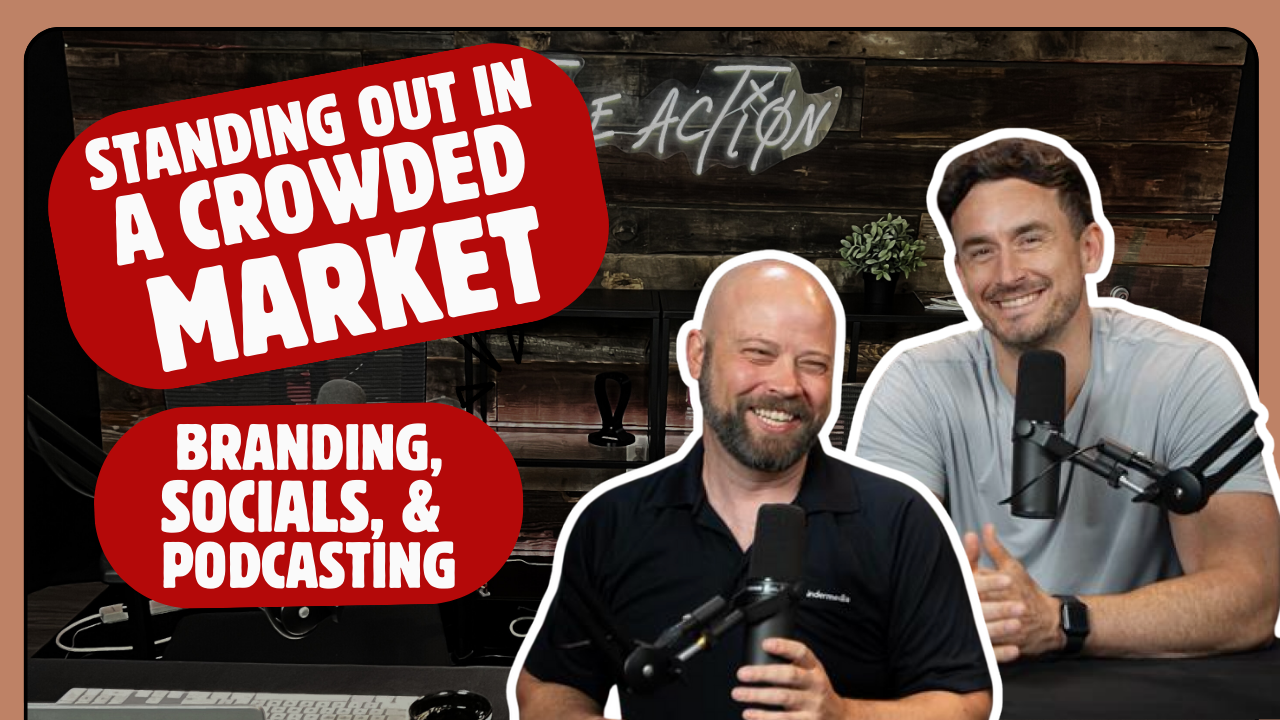Ep. 169: Mary Grothe – How BQ Beats Out EQ When Driving ACTION in Sales
Bringing Business Intelligence and Emotional Intelligence Together
There is some concern that the sometimes-fanatical allegiance to big data analysis, and the business intelligence it inspires, might overshadow the humanizing influence of the emotional intelligence people bring to decision making.[1]
That’s a lot of big ideas shoved into one small sentence, so before we go any further, let’s take a step back and get everyone on the same page.
We need to begin with defining some terms:
- Big data analytics is the process of looking at lots of different types of data to uncover information that might not otherwise be obvious, but that can help businesses and organizations make educated decisions. Examples of information that can be discovered using big data analytics can include “hidden patterns, unknown correlations, market trends and customer preferences.”[2]
- Business intelligence (BI) takes the results of big data analytics and applies more analysis and critical evaluation to it, so that recommendations can be presented to help executives, managers, and other corporate end users make informed business decisions about actions to take.[3] Business intelligence pays homage to what the numbers say.
- Emotional intelligence (EI) or emotional quotient (EQ) is a measure of how well people recognize, understand, and manage their emotions and the emotions of others—especially in high-pressure situations.[4] In the workplace, people with high EI are able to handle interpersonal relationships compassionately and sensibly. Emotional intelligence is concerned with the health of human interaction.
Now that we know the terms of our discussion, what we really need to understand is whether we’re going to let numbers rule our business decisions or whether there is room in the C-suite to also consider human behavior and how it should play into those decisions.
Mary Grothe is the CEO of Sales BQ, and she brings business intelligence and emotional intelligence together in a unique equation she calls the behavioral quotient (BQ). Mary and her team use BQ to help CEOs hire the right people for sales positions, develop high-growth sales strategies, and implement plans until they’re profitable.
Essentially, Mary and her team at Sales BQ use the big data provided by organizations in all facets of their sales, including performance, projections, goals, and assessments, to:
- Benchmark the business;
- Determine how to maximize their earnings;
- And make and follow through on decisions that will get them there.
This may all sound like the sole purview of multi-million dollar companies, but the principles of BQ can be applied to any size business.
For business owners, Mary suggests talking to each employee to find out how they think and how they feel. Knowing the former gives you insight into the latter.
The next step is to observe how they act and how they perform. How someone acts is a direct result of how they think and feel. If performance is not what it needs to be, it’s the result of thinking and feeling in ways that prevent productive action.
For the salesperson, the actions needed to succeed in any business should be familiar:
- Know absolutely everything about the product or service you sell; every detail counts. And be able to communicate it confidently and with enthusiasm.
- Do the work. If you don’t execute—if you don’t find the leads and close the sales—you won’t make it in sales regardless of anything else you may do.
What may be less familiar and certainly more rare, are the attributes of emotional intelligence a salesperson needs to succeed in a business operating on the principles of BQ. Being hyper-aware of your own emotions, any being able to tune in to the emotions of others, allows you to respond in ways that build trust and confidence.
Where actions and attributes come together—where business intelligence meets emotional intelligence—is where you’ll find Mary Grothe and her team at Sales BQ developing an organization’s behavioral quotient.
Key Points
- Understand that in every sales discussion, you are perceived as having a personal self-interest (PSI) that causes people to distrust you on some level. You overcome this disadvantage by demonstrating credibility (you know your information) and certainty (you understand their problem and can fix it).
- You need to understand a problem before you can fix it. Benchmarking will give you data to define and analyze a problem.
- Know how your team thinks, feels, acts, and performs. How you think affects how you feel. How you feel affects how you act. And your actions will either result in productivity or not.
- Not everyone is cut out for sales … and that’s okay.
Action Item
- Audit your mind and determine what you’re feeding it. Could what you’re feeding it be a reason for your situation?
- Back into the actions you need to take in order to achieve a goal, and then do what needs to be done. If you don’t, your goals remain only dreams.
Connect
You can connect with Mary on:
- Twitter @MaryLGrothe
- Facebook at Sales BQ
- LinkedIn com/in/marygrothe
And visit her website www.salesbq.com to take advantage of some free sales training!
__________
[1] Michael Brenner, Emotional Intelligence vs. Business Intelligence: Is Reliance on BI Putting EQ at Risk?, Visual Matters, November 6, 2017, https://visualmatters.com/emotional-intelligence-vs-business-intelligence-reliance-bi-putting-eq-risk/.
[2] Business Analytics/Business Intelligence Definitions, TechTarget, Accessed August 7, 2020, https://searchbusinessanalytics.techtarget.com/definitions.
[3] Business Analytics/Business Intelligence Definitions, TechTarget, Accessed August 7, 2020, https://searchbusinessanalytics.techtarget.com/definitions.
[4] What is Emotional Intelligence, Institute for Health and Human Potential, Accessed August 7, 2020, https://www.ihhp.com/meaning-of-emotional-intelligence/.















 Soundcloud
Soundcloud iHeart Radio
iHeart Radio Spotify
Spotify Spotify
Spotify


